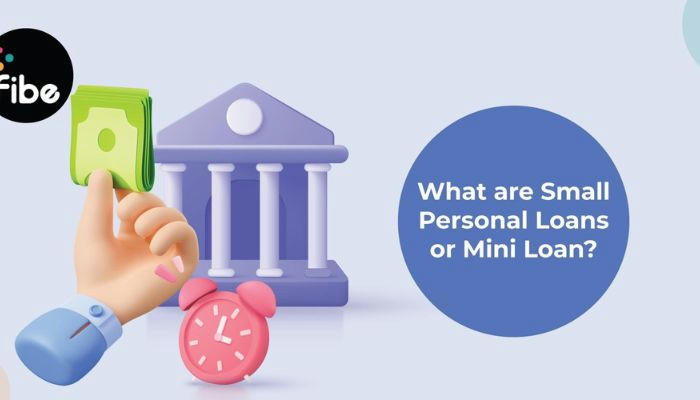Small Loans, Big Impact: Your Financial Lifeline
In today’s fast-paced world, financial emergencies can hit when you least expect them. Whether it’s a car repair, a medical bill, or just making ends meet until your next paycheck, sometimes you need a little extra cash to get by. That’s where small loans come in—a quick and accessible solution to your money problems. But are they as magical as they sound? Let’s dive into the world of small loans and see how they can be a financial lifeline—or a slippery slope.
What Are Small Loans?

Small loans, often called payday loans or personal loans, are short-term loans designed to help you cover immediate expenses. They typically range from $100 to $5,000 and are meant to be paid back within a few weeks or months. Unlike traditional bank loans, small loans are easier to qualify for, even if your credit score isn’t perfect. Sounds great, right? Well, there’s more to the story.
The Good: Why Small Loans Are Popular
Fast Cash When You Need It
Need money ASAP? Small loans are known for their quick approval process. In many cases, you can apply online and get the money in your bank account within 24 hours. No endless paperwork, no waiting weeks for approval—just fast, hassle-free cash.
Easy to Qualify
Unlike traditional loans, small lenders don’t require a perfect credit score. If you have a steady income, you’re likely to qualify. This makes small loans a go-to option for people with less-than-stellar credit.
Flexible Use
Unlike a car loan or a mortgage, small loans don’t come with restrictions on how you use the money. Whether it’s for an emergency, a vacation, or even a shopping spree, the choice is yours.
The Bad: The Hidden Costs
While small loans can be a lifesaver, they come with their own set of risks. Here’s what you need to watch out for:
High Interest Rates
Small loans are convenient, but they’re not cheap. The annual percentage rates (APRs) can range from 200% to 400%, depending on the lender. That means if you borrow $500, you could end up paying back $600 or more in just a few weeks.
Debt Trap
The biggest danger of small loans is falling into a cycle of debt. If you can’t pay back the loan on time, you might be tempted to take out another loan to cover the first one. Before you know it, you’re stuck in a never-ending loop of borrowing and repaying.
Fees, Fees, and More Fees
Late payment fees, rollover fees, origination fees—small loans come with a lot of extra charges. These fees can add up quickly, making your loan much more expensive than you initially thought.
The Ugly: Predatory Lenders
Not all small loan lenders are created equal. Some are outright predatory, targeting vulnerable borrowers with unfair terms and hidden fees. Here’s how to spot a shady lender:
No Credit Check Promises
While it might sound appealing, lenders who don’t check your credit at all are often more interested in trapping you in debt than helping you out.
Pressure Tactics
If a lender is pushing you to borrow more than you need or rushing you to sign the contract, it’s a red flag. Always take your time to read the fine print.
Lack of Transparency
A reputable lender will clearly explain the terms of the loan, including the interest rate and fees. If something seems unclear or too good to be true, it probably is.

Small Loans for Small Businesses
Small loans aren’t just for personal use—they can also be a lifeline for small businesses. Whether you’re a startup or an established business, small loans can help you cover unexpected expenses, invest in growth, or manage cash flow. Here’s how small loans can benefit small businesses:
Quick Access to Capital
Traditional business loans can take weeks or even months to process. Small loans, on the other hand, can provide the funds you need in as little as 24 hours. This is especially helpful for businesses facing urgent expenses, like equipment repairs or inventory restocking.
No Collateral Required
Many small business loans don’t require collateral, making them accessible to businesses that don’t have significant assets. This is a game-changer for startups and small businesses with limited resources.
Flexible Use of Funds
Whether you need to pay employees, buy supplies, or launch a marketing campaign, small loans give you the freedom to use the funds however you see fit.
Case Study: A Coffee Shop’s Success Story
Maria, the owner of a small coffee shop, needed $3,000 to buy a new espresso machine. With a tight budget and no time to wait for a traditional loan, she turned to a small business loan. She applied online, received the funds within a day, and was able to upgrade her equipment. The new machine increased her shop’s efficiency and customer satisfaction, leading to higher profits.

How to Use Small Loans Wisely
Small loans can be a powerful tool if used correctly. Here are some tips to make the most of them:
Borrow Only What You Need
It’s tempting to take out a larger loan, but remember: the more you borrow, the more you’ll have to pay back. Stick to the amount you actually need.
Read the Fine Print
Before signing anything, make sure you understand the terms of the loan. Pay special attention to the interest rate, fees, and repayment schedule.
Have a Repayment Plan
Don’t take out a loan unless you’re confident you can pay it back on time. Create a budget to ensure you can meet the repayment deadlines without stretching yourself too thin.
Explore Alternatives
Before jumping into a small loan, consider other options like borrowing from friends or family, negotiating payment plans with creditors, or even using a credit card with a lower interest rate.

Conclusion: Small Loans, Big Responsibility
Small loans can be a financial lifeline when used responsibly, but they’re not a magic solution to money problems. Whether you’re an individual or a small business owner, it’s important to weigh the pros and cons, explore alternatives, and make sure you have a solid repayment plan. Remember, while small loans can help you in a pinch, they’re not a substitute for good financial habits like saving and budgeting.
So, the next time you’re in a tight spot, think carefully before reaching for that small loan. It might just be the lifeline you need—or the anchor that drags you down. The choice is yours!
